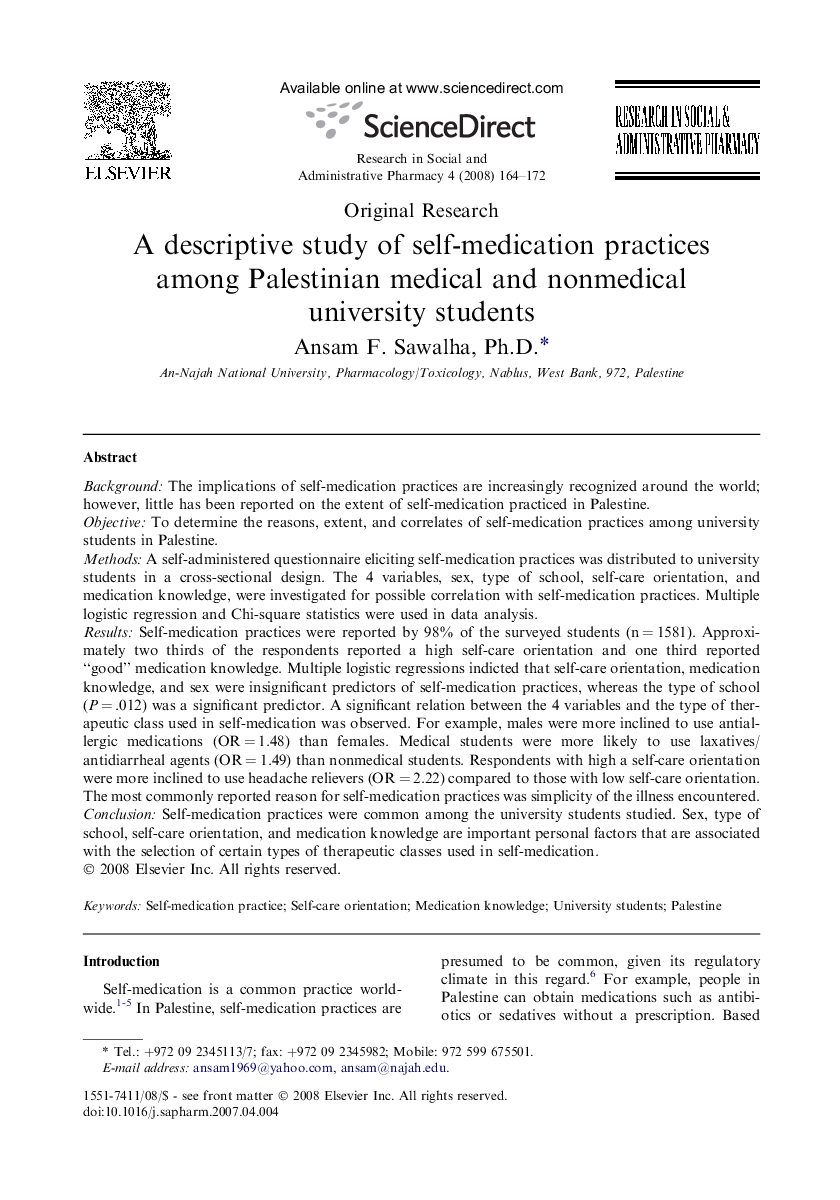| Article ID | Journal | Published Year | Pages | File Type |
|---|---|---|---|---|
| 2508933 | Research in Social and Administrative Pharmacy | 2008 | 9 Pages |
BackgroundThe implications of self-medication practices are increasingly recognized around the world; however, little has been reported on the extent of self-medication practiced in Palestine.ObjectiveTo determine the reasons, extent, and correlates of self-medication practices among university students in Palestine.MethodsA self-administered questionnaire eliciting self-medication practices was distributed to university students in a cross-sectional design. The 4 variables, sex, type of school, self-care orientation, and medication knowledge, were investigated for possible correlation with self-medication practices. Multiple logistic regression and Chi-square statistics were used in data analysis.ResultsSelf-medication practices were reported by 98% of the surveyed students (n = 1581). Approximately two thirds of the respondents reported a high self-care orientation and one third reported “good” medication knowledge. Multiple logistic regressions indicted that self-care orientation, medication knowledge, and sex were insignificant predictors of self-medication practices, whereas the type of school (P = .012) was a significant predictor. A significant relation between the 4 variables and the type of therapeutic class used in self-medication was observed. For example, males were more inclined to use antiallergic medications (OR = 1.48) than females. Medical students were more likely to use laxatives/antidiarrheal agents (OR = 1.49) than nonmedical students. Respondents with high a self-care orientation were more inclined to use headache relievers (OR = 2.22) compared to those with low self-care orientation. The most commonly reported reason for self-medication practices was simplicity of the illness encountered.ConclusionSelf-medication practices were common among the university students studied. Sex, type of school, self-care orientation, and medication knowledge are important personal factors that are associated with the selection of certain types of therapeutic classes used in self-medication.
